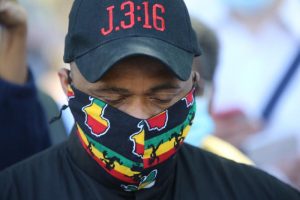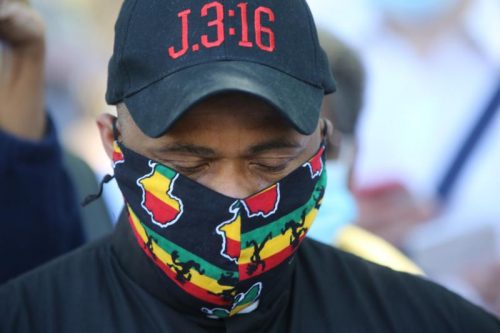THE KILLING OF GEORGE FLOYD WHILE IN POLICE CUSTODY HIGHLIGHTED ONCE AGAIN — in a horrible, visceral way — the problem of racism in this country. The incident itself elicited a range of responses: shock, anger, peaceful protests, violent clashes, prayers for healing, calls for action.

But what kind of actions will finally put an end to the sins of prejudice, discrimination and racism — scourges so deeply rooted in our history and our human failings? As Bishop Kettler says in his column this month, real solutions will require long-term commitments to education, prayer and reform.
Like other people of goodwill, I want to be part of the solution — someone who treats others the way God wants them to be treated, who is capable of changing hearts and minds, and who contributes to ending systemic racial disparities in our society. The U.S. bishops offer much on which to reflect in this regard in their pastoral letter “Open Wide Our Hearts: The Enduring Call to Love.”
Drawing from their reflection and Bishop Kettler’s column, I would offer a few additional ideas to guide our thinking as a Catholic community:
• Let Catholic social teaching be our guide. First, we are called as Catholics to protect human life and promote human dignity. All human life is sacred. This makes racism a life issue, as the U.S. bishops remind us in their letter, because it is an attack on human life and dignity. Second, we are instructed to put the needs of the poor and vulnerable first — a fact which Jesus reminds us in his discourse about the Last Judgment (Matthew 25:31-46). When people of color face disparities in housing, education and the criminal justice system, when they are targeted by symbols of hatred, when black parents feel compelled to have “the talk” with their children because they fear for their safety, they are vulnerable to actions and threats outside their control that require our entire society’s focused attention. All of which leads to the principle of solidarity, which calls us to be peacemakers who work nonviolently for justice alongside all of our brothers and sisters.

• Let’s do more listening before we do much talking. Many of us are quick to share our thoughts and opinions with others. But we aren’t always so good at listening — listening to facts, listening to other people about their personal experiences, listening to other viewpoints that challenge my own, listening with a goal of trying to understand where another person is coming from, listening with my heart when I pray to discern what God’s really asking of me. We need to listen more in the spirit of “lectio divina,” prayerfully reflecting on what we read or hear, so that we think more deeply and respond more thoughtfully when we share our thoughts and ideas with others.
• Let’s be intentional about encountering others and building relationships. We need to be purposeful about seeking out relationships and dialogue opportunities with people we don’t normally interact with — whether that’s people with a different skin color than ours, different political beliefs than ours, or different religious beliefs than ours. It is difficult to love our neighbor when we don’t know our neighbor. Building these relationships is what leads to greater trust and understanding and paves the way for people to work together for justice, including the elimination of prejudice and racism in all its forms.
Joe Towalski is editor of The Central Minnesota Catholic.






















